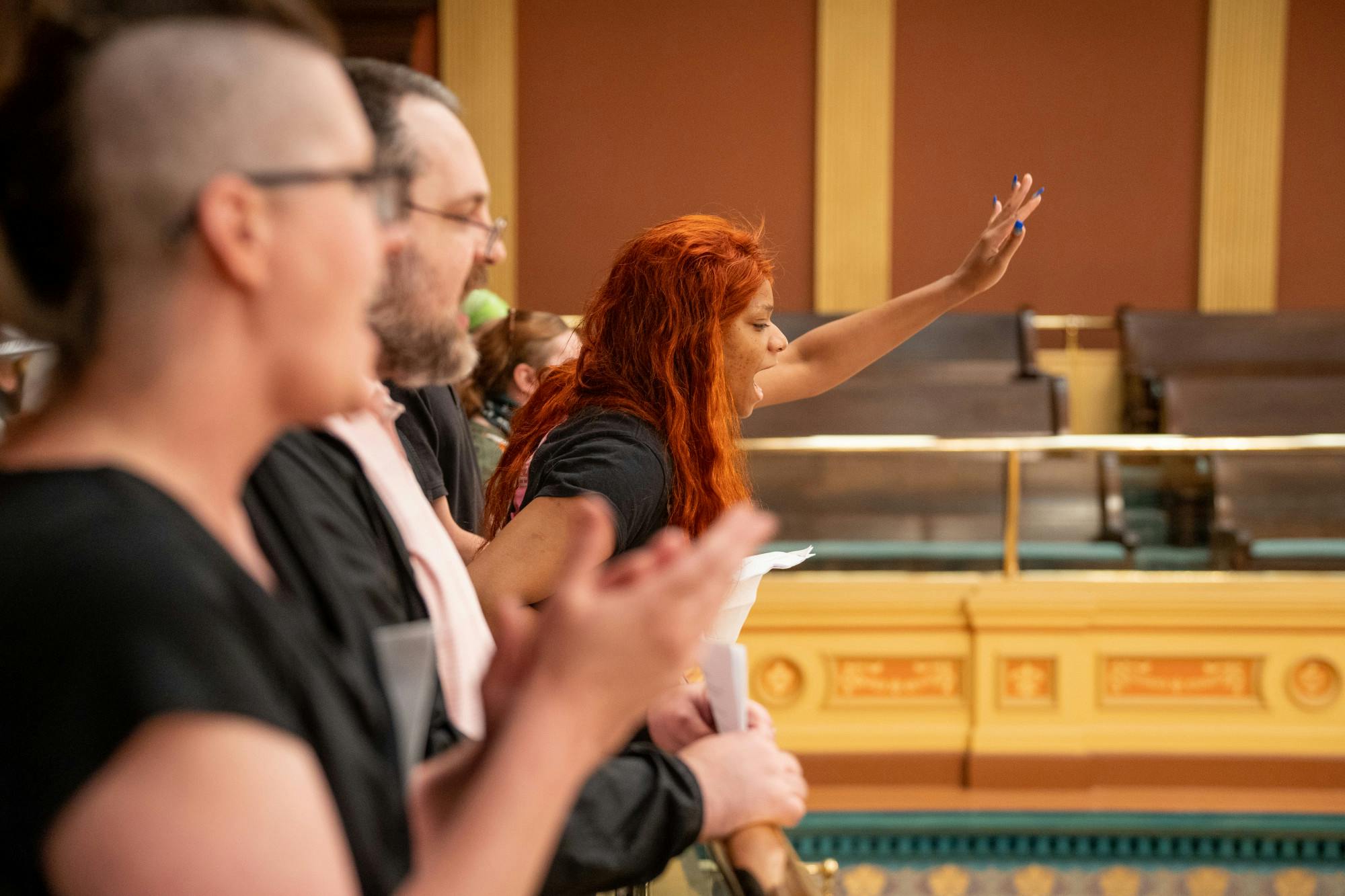Abortion-rights advocates, led by the Michigan Coalition for Reproductive Liberation, or MCRL, gathered on the front steps of the Michigan Capitol on June 8 to demand the repeal of Michigan’s 1931 abortion ban.
The protest was the first abortion-rights event protester Becky Kress has ever attended. She said she didn’t know that she would ever have to come out and fight for what she believes is her right: the ability to control her body.
“It's my first time being out here,” Kress said. “Here we are today, having to protest something that shouldn't even be in discussion.”
MCRL’s protest followed the national response to leaked Supreme Court documents that showed the possibility of Roe v. Wade being overturned in the near future.
If Roe v. Wade, the 1973 ruling protecting a woman's right to an abortion, is overturned, Michigan’s abortion ban would go into effect. The law makes it a felony in Michigan to perform an abortion, unless “necessary to preserve the life of such woman.”
At around 12:30 p.m., several dozen protesters gathered closely on the Capitol steps to listen to several individuals speak about what abortion rights mean to them.
MCRL member Dianne Feeley told the crowd she has had enough of the judgment of others’ reproductive decisions. She demanded that the 1931 ban be repealed.
“Over the course of our reproductive lives, we have many medical needs, and cutting off access to one, as the 1931 anti abortion laws does, condemns the pregnant person to imprisonment in their own bodies,” Feeley said.
Feeley said, given the risks of pregnancy, this ban could result in severe complications and death for women.
Janice Fialka emphasized the importance of “lifting up” women who have died as a result of unsafe abortions.
“For them, we need to continue to work so that all people can make a choice,” Fialka said. “40 years ago … I passed out my very first petition, asking people to sign to reverse the 1931 law. That was a long time ago. We didn't win then, but Roe v. Wade was passed. So here we are, again, 40 years later, doing this.”
Fialka said she is “shaking in her boots” because she knows, from personal experience, what it is like to have to travel to a different state in order to obtain a safe, legal abortion.
“I have two kids, I’m a proud mother, I've had an abortion,” Fialka said. “I know that that was the right decision for me, as is true for many other women.”
At 2 p.m., protesters then moved their demonstration inside the state House viewing gallery. Above lawmakers who were in session, they stomped and chanted, ‘Our bodies, our lives, our right to decide’.
Protester Zora Monico said the purpose of interrupting the session was to force legislators to hear and consider their opinions.
The demonstration prompted police officers and staff to evacuate the protesters into the hall. Police forcibly removed and handcuffed protester Cameron Lee.
Outside the House chamber, protesters sat on the floor and continued to yell, demanding answers for why Lee was taken in custody and that he be released. MCRL organizer Traci Jo Rizzo said the outrage was caused by not knowing what the justification for the arrest might be.
At 3 p.m. Lee was released from custody. He said he was handcuffed for assault but was released because he was cooperative. He called the interaction “comical.”
“I was standing there and not moving,” Lee said. “He grabbed me and then threw me around and handcuffed me.”
Monico said she believes bigotry played a role in the arrest.
Support student media!
Please consider donating to The State News and help fund the future of journalism.
“He's the only person with face tattoos and I'm one of the only black women here,” Monico said. “He got arrested on an assault that never f——ing happened … So I do think that there was bigotry at play, and I think it's absolutely disgusting.”
Discussion
Share and discuss “Abortion-rights advocates interrupt House session with protest, one taken into custody” on social media.








